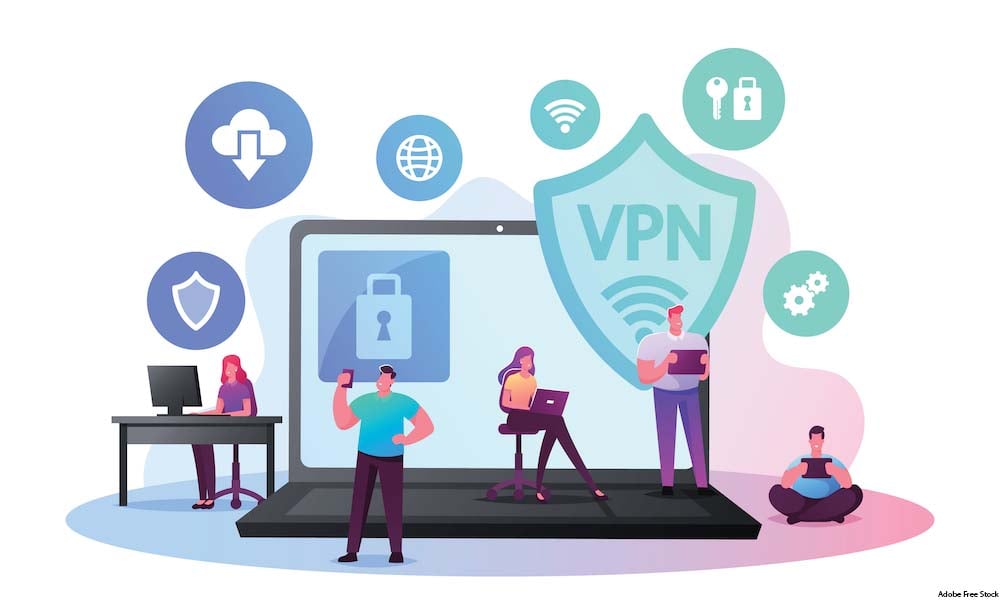Technology
VPN Basics: What Is a VPN and How Does It Work?

Modern everyday life looks almost impossible without the use of the Internet. According to statista.com data, about 89% of people use the World Web a few times daily. Plus, on average, a user spends up to 147 minutes a day on the Internet – just shy of 2.5 hours, and this number keeps increasing daily.
Do you know how long you spend online?
More browsing online can result in sharing your personal data with third parties. Many people don’t know about privacy violations and personal data theft, which can happen occasionally during web surfing. For example, with the new privacy laws, you don’t have to accept third-party cookies that track the sites you visit online.
If you are concerned about who may be tracking you online – read on.
A few great ways to protect your private information online include changing your privacy settings on browsers and VPN services. In this business blog, you’ll learn the basics of VPN software.
What is a VPN?
VPN software creates a small private network that hides your browsing, personal info, and data from third-party cookies and undetected data theft.
VPN software creates a direct connection with the server in other locations. The end-user can hide their location, name, and additional private info. Sometimes, they can also access various options to set up VPN software for the best possible experience.
Different Types of VPNs
As always, the modern market is developing various products to satisfy all customers. Privacy and personal data protection services are not an exception. There are at least a few different VPNs available for Internet users. Among the most popular types of these services, for example, are:
- Downloadable desktop VPN apps
- Browser Extensions
- VPN websites
Many different software developers offer “multitool” VPNs for privacy protection. For example, a desktop version and browser extensions in one flacon. You can turn it on for almost any need while using your laptop, computer, tablet, or mobile device.
How to use a VPN?
One of the main advantages of modern VPNs is their user-friendly interface. Most programs, websites, and extensions are easy to use, launch, and set up in just a few clicks. You can always find a manual to help you get used to your particular software. Here is a brief general instruction on how to use VPN services:
Step 1
Launch your app, open a browser extension, or visit your preferred VPN website.
Step 2
Pick up the preferred location for your virtual private network launch.
Step 3
Wait for your network to start and confirm the connection.
Step 4
You’re all set – and can now browse online with privacy.
By following these simple steps, you can use about 80% of any widely available VPN services.
Still, in some cases, some extra setup might be required. In most cases, many additional options are available for advanced users. Sometimes, you might need to buy a premium version to access a whole variety of different settings.
Advantages of VPNs
You might ask: “Why should I use these VPN tools for my protection? What’s so good about them? My antivirus software is good enough”. You might be particularly correct, but only to a certain point.
Here are only a few of the main advantages of using VPN software:
- You remain fully anonymous
- Can access content that is restricted in your current location
- Hide your personal information from theft
- Connect via public Wi-Fi and avoid traffic sniffers, leakage of personal data, etc
- Prevent tracking, including webcam, location, etc
AntiVirus Software
To get complete protection against about 99% of all possible threats on the Internet, you need to use both antivirus and VPN software. Also, you must stick to the general list of safety rules on the World Web.
VPN Limitations
VPN programs have limits and minor disadvantages, like any other product. In most cases, they usually won’t give you too much trouble. Still, sometimes you might consider not using a VPN due to those limitations.
Unfortunately, creating a virtual private network is a pretty highly traffic-consuming task. So, you will need a good and steady Internet connection to achieve good results. It is imperative to consider using a VPN for streaming or watching various multimedia.
Also, there is a slight disadvantage related to the peer limitation on any server. For example, suppose too many users will use an American server for virtual private network hosting. In that case, they might fail to launch it. As a result, those users will need to choose another location. Still, in most cases, this problem might be solved by buying a premium version of a program.
A Small Heads-Up
Nowadays, many countries restrict citizens’ access to certain content or online activities.
For example, what should you do when you travel somewhere where your favourite Netflix show is banned? The answer is easy! You can use VPN services to access almost any restricted content.
Still, you must understand that VPN use might be an administrative offence. Most often, you will need to pay a minor to medium penalty. So, we recommend you look at local laws before using VPNs in new places.
Conclusion
VPN software is one of the most popular and easy-to-use services to protect end-user personal data and privacy while accessing the internet.
Despite minor shortcomings, VPNs are the “golden standard” of modern Internet security, and they are recommended along with antivirus software and setting your privacy settings in browsers.
Last, they are straightforward to use, especially when accessing restricted content while travelling. Businesses can encourage staff to use a preferred VPN while accessing business systems via laptops or devices.









